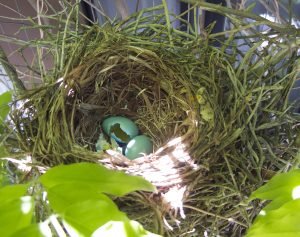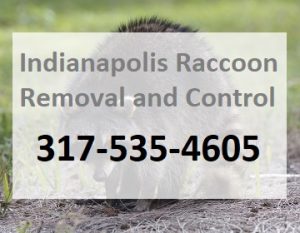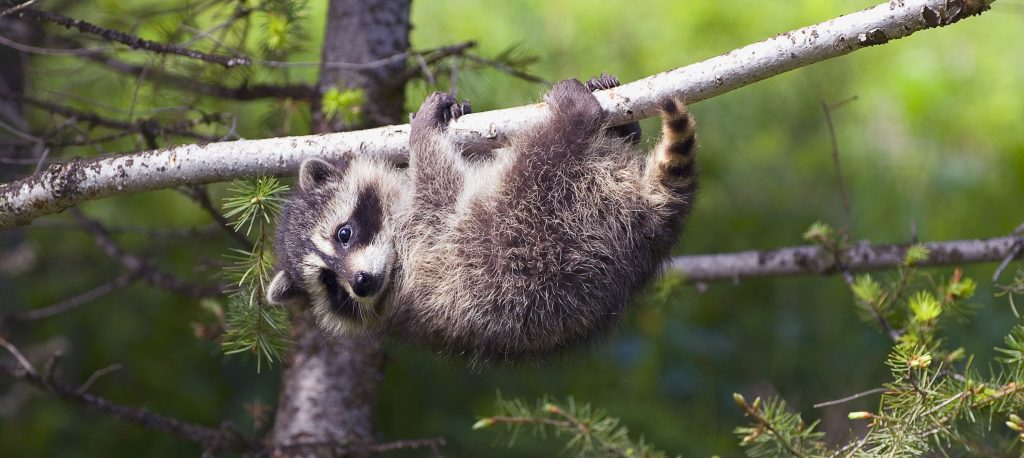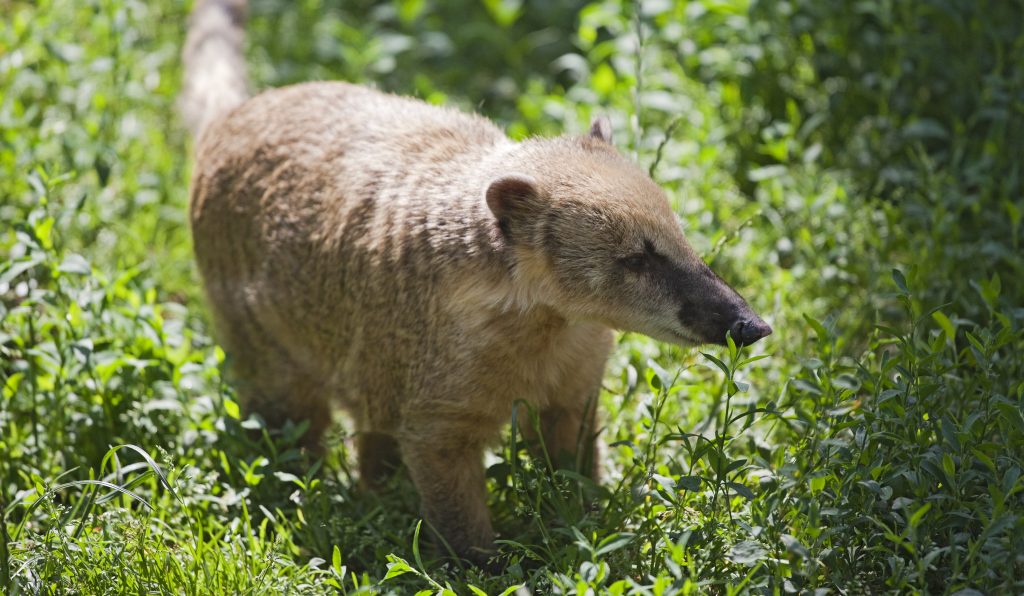Continue reading if you would like to learn more about different raccoon diets, food preferences, and eating habits.
Urbanized Raccoons
The term “urbanized raccoons” refers to raccoon colonies that live near cities, residential neighborhoods, and commercial districts. Homes, sheds, garages, patios, driveways, garbage cans, commercial offices, businesses, dumpsters, and more can all be common targets for raccoons looking for dinner in these areas. Such raccoons have adapted well over the years of increasing new construction and land developments. They use their dexterous paws and intelligence to get into places where food is abundant; such as the places mentioned before. With these skills, raccoons can acclimate and adapt to changing environments; making it easier to feed themselves and their colonies in any conditions. Obstacles such as closed doors, high shelving, stairs, and more are no match for their capabilities.
Raccoons look for food scraps in outdoor rural areas because they know they are a good source for meals. Dumpsters, garbage cans, and recycling bins are all eye-catchers to these night-time eaters. Also, city raccoons are known to find entry points into residential and commercial properties. They use attics, crawl spaces, patios, porches, decks, sheds, and more for shelter against harsh and cold weather, and for breeding as well. They are certainly capable of leaving behind quite a mess; often times, expensive repairs and foul leftovers of eating, breeding, and bathroom breaks.
Wilderness Raccoons
The palate of a raccoon that lives in the wild is much simpler. Out in the forests, woods, riversides, and meadows, raccoons use their natural hunting and gathering skills to eat. Fish is probably one of the main food sources for raccoons near natural bodies of water. This also includes any similar pond or river findings; such as crayfish, frogs, snakes, lizards, and more. When it comes to the forest, raccoons will not turn down good fruit, nuts, and meaty insects for a snack. Berries, acorns, mushrooms, and aome plant like are common choices for wild raccoons. When it comes to hunting in the forest, raccoons are also known to catch and eat rodents, squirrels, and even small birds and bird eggs!





